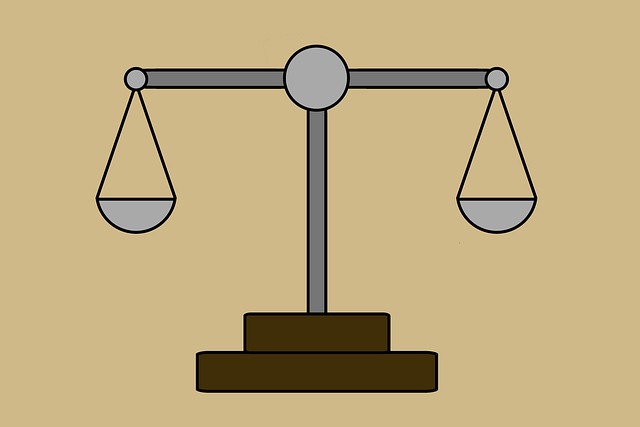Child welfare hearings are legal processes aimed at safeguarding children facing safety risks, balancing their needs with the protection of parental rights. Understanding and exercising parental rights, including the right to legal representation, is crucial for protecting these rights. Appeals process allows both parties to challenge decisions that may infringe upon parental rights protection. Legal advocacy ensures parents receive adequate representation, navigate complexities, and advocate for their children's best interests while preserving their own rights, ultimately leading to fair outcomes and strengthening parental rights protection.
“In matters concerning child welfare, understanding the legal framework is paramount for parents facing hearings and appeals. This comprehensive guide navigates the intricate process, empowering parents with knowledge of their parental rights protection during crucial proceedings. From comprehending key players and hearing processes to navigating appeals and addressing common issues, this article offers strategic insights. Discover how legal advocacy strengthens parental rights, ensuring fair treatment in child welfare cases.”
- Understanding Child Welfare Hearings: Key Players and Processes
- Parental Rights During the Hearing: What You Need to Know
- Legal Protections for Parents: Ensuring Fair Treatment
- Navigating Appeals: After the Initial Hearing Decision
- Common Issues in Child Welfare Appeals and How to Address Them
- Strengthening Parental Rights Protection: The Role of Legal Advocacy
Understanding Child Welfare Hearings: Key Players and Processes

Child welfare hearings are legal processes designed to protect the best interests of children involved in situations where their safety or well-being may be at risk. These hearings bring together key players, including parents, guardians, social workers, and lawyers, to discuss and make decisions regarding a child’s future. Understanding the process is crucial for safeguarding parental rights protection while ensuring the child receives appropriate care.
In a child welfare hearing, a judge or magistrate presides over the case, evaluating evidence presented by all parties. This may include reports from social services, medical records, and witness testimonies. The primary goal is to determine whether the child is in need of protection and, if so, to develop a plan that balances the child’s needs with the rights and responsibilities of parents or guardians. Each party has the opportunity to present their case, challenge evidence, and offer recommendations, ensuring a fair process that aims to uphold both the child’s welfare and parental rights protection.
Parental Rights During the Hearing: What You Need to Know

During child welfare hearings, parental rights are a key focus. Parents have the right to be present and actively participate in the hearing, providing evidence and arguments to defend their caregiving abilities. They can cross-examine witnesses and ensure any information presented against them is fair and accurate. Understanding these rights is crucial for protecting parental protections and ensuring a just process.
It’s essential to know that parents also have the right to legal representation. Having an attorney can significantly enhance their ability to navigate complex legal proceedings, challenge adverse evidence, and advocate for their children’s best interests while preserving their own rights. This support is vital in safeguarding parental rights protection throughout the hearing and potential appeals process.
Legal Protections for Parents: Ensuring Fair Treatment

In child welfare hearings, it’s paramount that the legal system upholds and protects the parental rights of all involved. Parents face significant challenges when their children are at risk, and ensuring fair treatment is crucial. Legal protections exist to safeguard parents’ due process rights, allowing them to actively participate in proceedings, challenge evidence, and present their case.
These safeguards enable parents to navigate the complexities of child welfare systems with confidence, knowing that their voices will be heard. Understanding their parental rights protection is essential for effectively navigating appeals and ensuring the best outcome for both parent and child.
Navigating Appeals: After the Initial Hearing Decision

After an initial hearing, both parties—the child welfare agency and the parents or guardians—have the right to appeal the decision if they believe it does not align with the best interests of the child or infringes upon their parental rights protection. Navigating this process requires careful consideration and strategic planning. Appeals offer a crucial opportunity to present additional evidence, argue against the initial findings, and advocate for alternative outcomes that could ultimately impact the future of the child and the family.
The appeals process involves strict deadlines, detailed documentation, and adherence to legal protocols. It’s essential to understand the specific grounds for appeal, gather compelling evidence, and construct a robust argument to challenge the initial hearing decision. Engaging legal counsel experienced in child welfare cases can significantly enhance the chances of a favorable outcome, ensuring parental rights are respected while maintaining the ultimate goal of safeguarding the child’s welfare.
Common Issues in Child Welfare Appeals and How to Address Them

Child welfare hearings and appeals often present a myriad of complex issues, with common challenges arising from both procedural and substantive aspects. One frequent concern revolves around balancing the rights of parents or guardians with the primary goal of ensuring the child’s safety and well-being. Appeals may question decisions to remove a child from parental care, challenging the weight given to evidence of abuse or neglect. Addressing these involves a meticulous review of the initial hearing’s procedural integrity, examining if due process was followed and all relevant information presented.
Additionally, appeals often delve into questions of bias, questioning whether the decision-makers were impartial. This requires a careful analysis of the evidence and decisions made, ensuring that the outcome is fair and not influenced by personal biases or preconceptions. Strengthening parental rights protection in these scenarios involves advocating for transparent processes, promoting access to legal representation, and guaranteeing a thorough evaluation of all mitigating factors before any final decisions are reached.
Strengthening Parental Rights Protection: The Role of Legal Advocacy

In child welfare hearings, strengthening parental rights protection is paramount. Legal advocacy plays a crucial role in ensuring parents are equipped with the knowledge and representation to defend their rights and challenge any adverse decisions. Skilled legal counsel can navigate complex laws and regulations, providing guidance tailored to each unique family situation. They empower parents by explaining their entitlements, assisting in gathering relevant evidence, and presenting compelling arguments to protect their parental status.
Through strategic legal advocacy, families can navigate the complexities of these hearings with confidence. This support is vital to preserving the bond between parents and children, fostering stability, and ensuring the best interests of both are considered. By strengthening parental rights protection, legal guidance enables fair outcomes and paves the way for positive long-term consequences for all involved.






